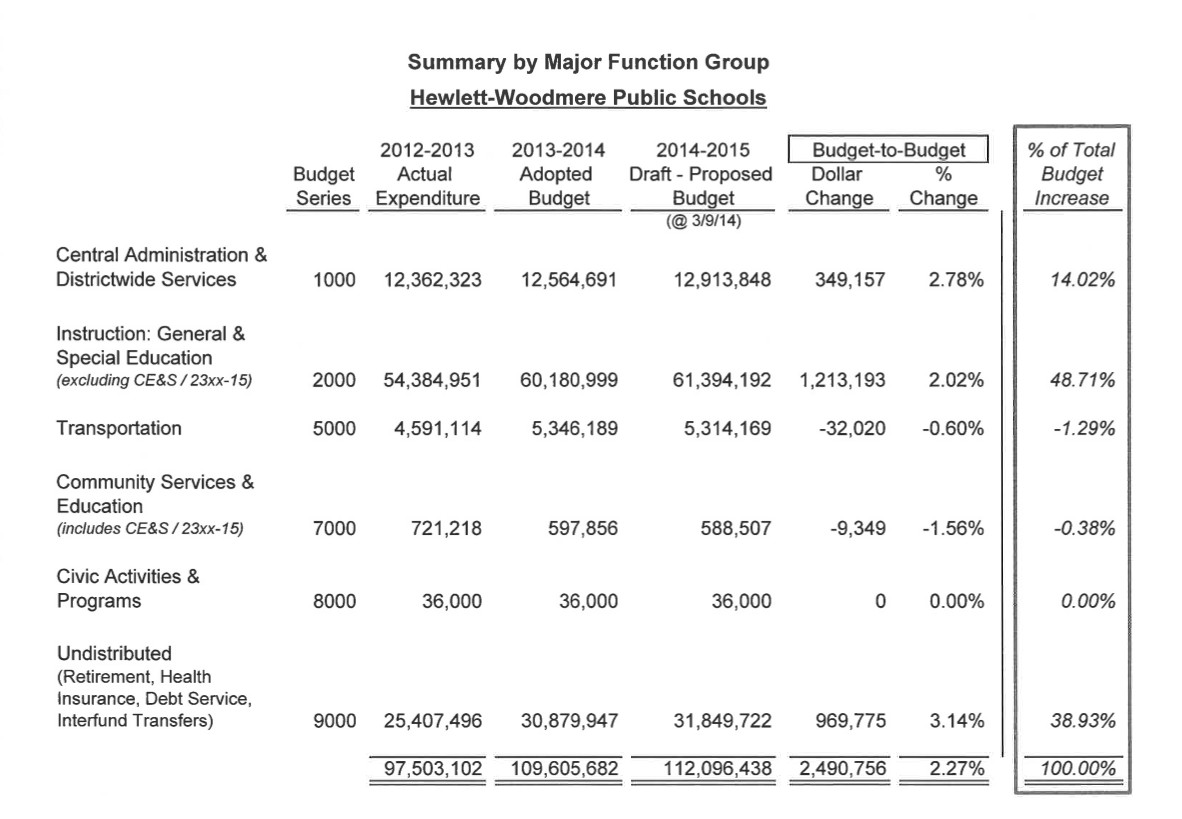Turnout low at Hewlett-Woodmere budget forums
Howard Goldstein was one of only a few residents who attended the Hewlett-Woodmere School District’s budget forum on March 27. He said that at one time, these meetings were well attended, but people seem to care less and less as they pay more and more in taxes.
“Meetings have been different because people see that two percent budget increase and just accept it,” said Goldstein, a Hewlett resident since 1997, whose two sons graduated from Hewlett High School. “You used to go to the high school auditorium for these public budget forums and see over 100 people there, debating what was on it. You don’t see that here anymore. I can’t believe I had the only question about how the tax rates affect us as homeowners in this district.”
Dr. Peter Weber, the district’s assistant superintendent of business, addressed the low resident turnout before Goldstein and another resident asked one question each. “In years where there isn’t a lot of controversy, the group is small,” Weber said. A forum on March 9 attracted only 10 residents.
Valley Stream resident Ursula Winter, whose daughter is a Hewlett High School senior, attributed the low turnout to the small budget increase. “When there’s a nine percent increase, that’s when you see people at the forum,” she said. “With a two percent increase, you won’t see anyone here.”
The proposed budget for the 2014-15 school year is $112 million, $2.5 million more than the current spending plan. The tax-levy cap is 2.1 percent, and the tax levy is anticipated to be $99 million, an increase of 2.09 percent. The district school board is expected to approve the budget in April, and the public vote is May 20.
“Taxes, specifically property assessments, keep going up for residents in the district,” Goldstein said. “The two percent tax levy bears no relationship to reality. I pay the money but it just goes up every year.”
Responding to Goldstein, Weber said that for years, when district residents had their properties assessed, they would challenge the assessments. “The county decided to have a consultant reassess every [homeowner] through a computer algorithm,” Weber said. “Now there are about 20 to 30 percent of all people challenging their assessments. It’s a new game of roulette every year.”

 43.0°,
Partly Cloudy
43.0°,
Partly Cloudy 




